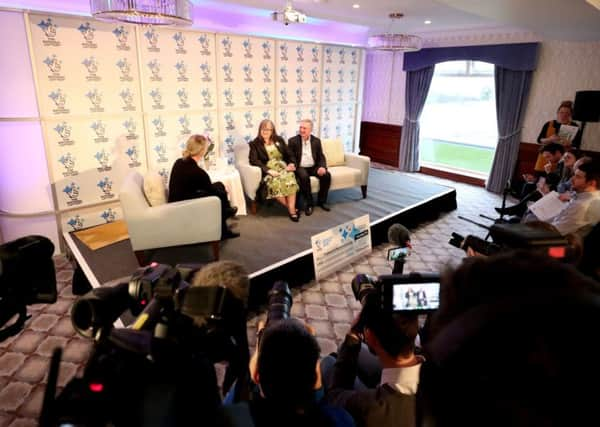Great wealth probably cannot buy happiness, but I would be pleased to give it a try


It is of course vital for the hundreds of million people around the world who live in poverty. But once you are above that level, as are the overwhelming majority of people in the UK, money is not so relevant.
It does not buy love or friendship or family or expertise or achievement, fulfilment, character, respect.
Advertisement
Hide AdAdvertisement
Hide AdIn short, money does not buy any of the building blocks of happiness.
Money does help with health, and affluent people have higher life expectancy, but in western Europe everyone has access to free healthcare for the most serious illness.
Wealth cannot defeat terminal disease. The tech billionaires Steve Jobs and Paul Allen, two of the world’s richest men, both died tragically young, 56 and 65 respectively.
And money does not buy time.
Now, well into adulthood, I understand the message on the clock tower at Ballygowan that my Dad pointed out to us as kids: ‘The Time Is Short.’
Advertisement
Hide AdAdvertisement
Hide AdAs a boy, I thought: but there is so much time! I don’t think that now.
Having said the above, I would jump at the opportunity to test my theory if someone offered me £114 million, the colossal lump sum won by Patrick and Frances Connolly from Moira in the lottery.
Now that newspapers are much cheaper to buy than they were in the past (I mean the whole title, not just an edition), I would try to own the News Letter if I came into such a fortune — and I would still have the best part of £100m spare.
Good luck Connollys! We are all enjoying your win vicariously, and dreaming what we would do in your barely believable situation.
• Ben Lowry (@BenLowry2) is News Letter deputy editor